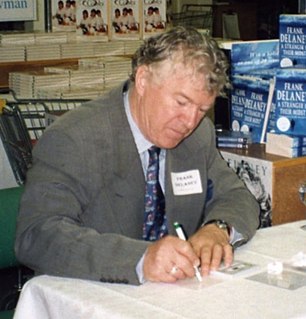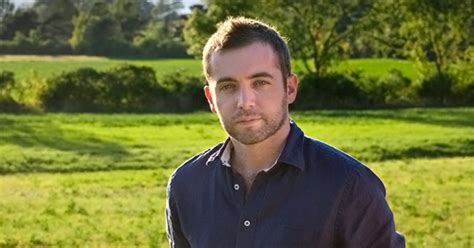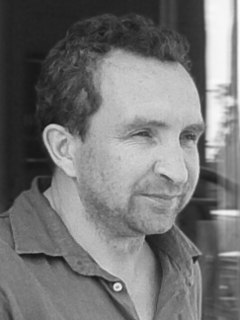A Quote by Frank Delaney
As an arts journalist in London, working mainly for the BBC, I interviewed hundreds if not thousands of authors. From them I gleaned a great deal of passing instruction in writing and I observed one fascinating detail: no two writers approach their work - physically - in the same way.
Related Quotes
In junior high I read a lot of Stephen King, whose Americana approach to writing was often about "the terror next door" and at the same time I was reading a lot of Clive Barker, who was on the other end of the horror pendulum: insidious and disturbingly psychological. I found it fascinating how these two authors came at horror from two totally different perspectives.
When I'm editing my work, I'm looking for everything to fit, to feel seamless, for every detail or line of dialogue or scene to feel necessary and organic. I approach the writing of others in much the same way while always working to preserve the writer's voice. To allow myself to be vulnerable on the page, I tell myself no one is going to read my work. There's no way I could put myself out there otherwise.
Professionally, I was at Bristol Old Vic Theatre School and did lots of things there, and then I won the BBC Carlton Hobbs Award, so I did some BBC Radio drama work, which is a lovely way to start out because you work with lots of great people, and you're working all the time, so you're learning rather than sitting around and waitressing.
Writers are egotists. All artists are. They can’t be altruists and get their work done. And writers love to whine about the Solitude of the Author’s Life, and lock themselves into cork-lined rooms or droop around in bars in order to whine better. But although most writing is done in solitude, I believe that it is done, like all the arts, for an audience. That is to say, with an audience. All the arts are performance arts, only some of them are sneakier about it than others.
Thousands of volumes have been written about aviation, but we do not automatically have thousands of true and special friends in their authors. That rare writer who comes alive on a page does it by giving of himself, by writing of meanings, and not just of fact or of things that have happened to him. The writers of flight who have done this are usually found together in a special section on private bookshelves.
I read continually and don't understand writers who say they don't read while working on a book. For a start, a book takes me about two years to write, so there's no way I am depriving myself of reading during that time. Another thing is that reading other writers is continually inspiring - reading great writers reminds you how hard you have to work.
There's a great deal of stripping away; in early drafts, I may say the same thing two or three times, and each may be appropriate, but I try to pick the best and improve it. I work on sound a great deal, and I will change a word or two, revise punctuation and line breaks, looking for the sound I want.
I think one of the London Film Festival strengths is that it's set in London but it's not about London. It's about the diversity of this city and it's about world cinema. And that's what London is - London is a place where its identity is always in a state of flux. So, this festival celebrates the way in which it is always changing. That's why London is a fascinating place and that's why the film festival is a fascinating film festival.
There are some great writers who are great talkers, but there are more great writers who are not great talkers. People seem to think there is some connection between talking and writing, but I love to talk and if there were some connection between the two of them I would be the most prolific writer in the history of the world.







































